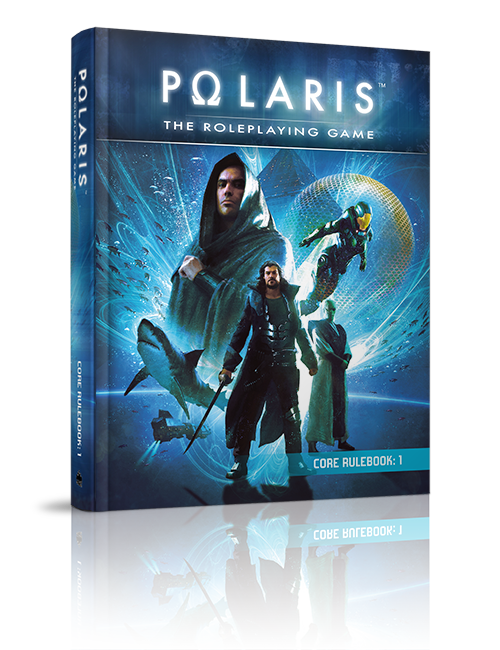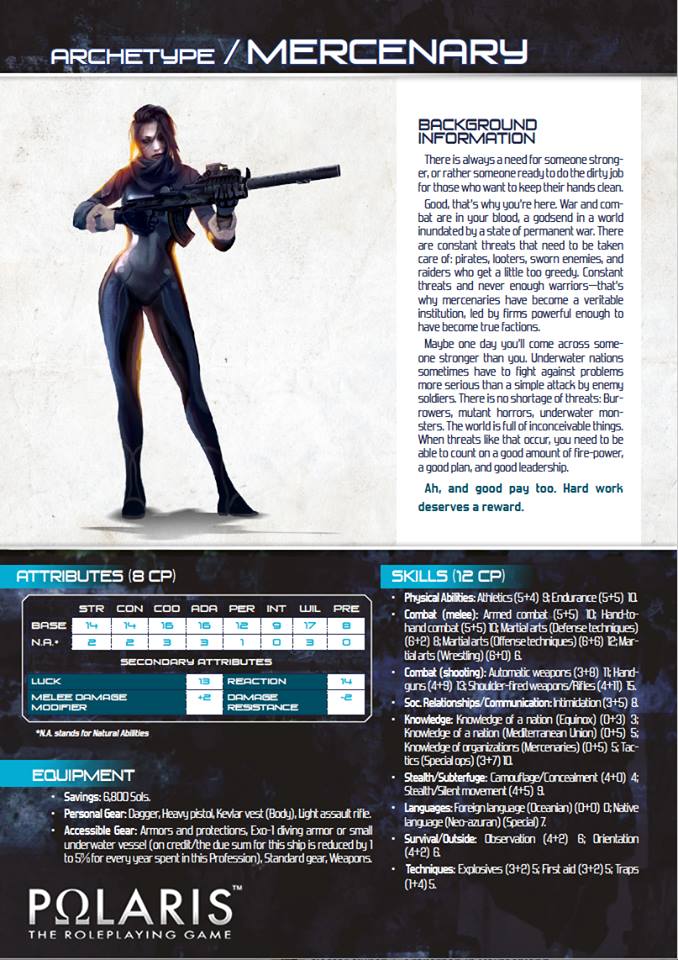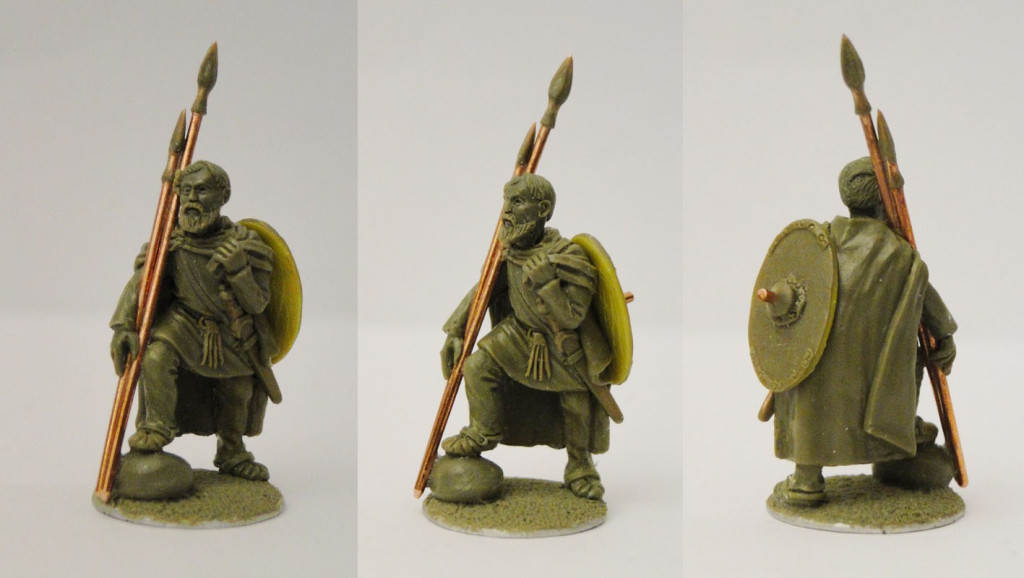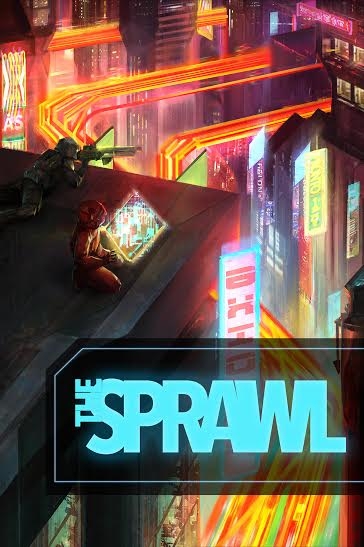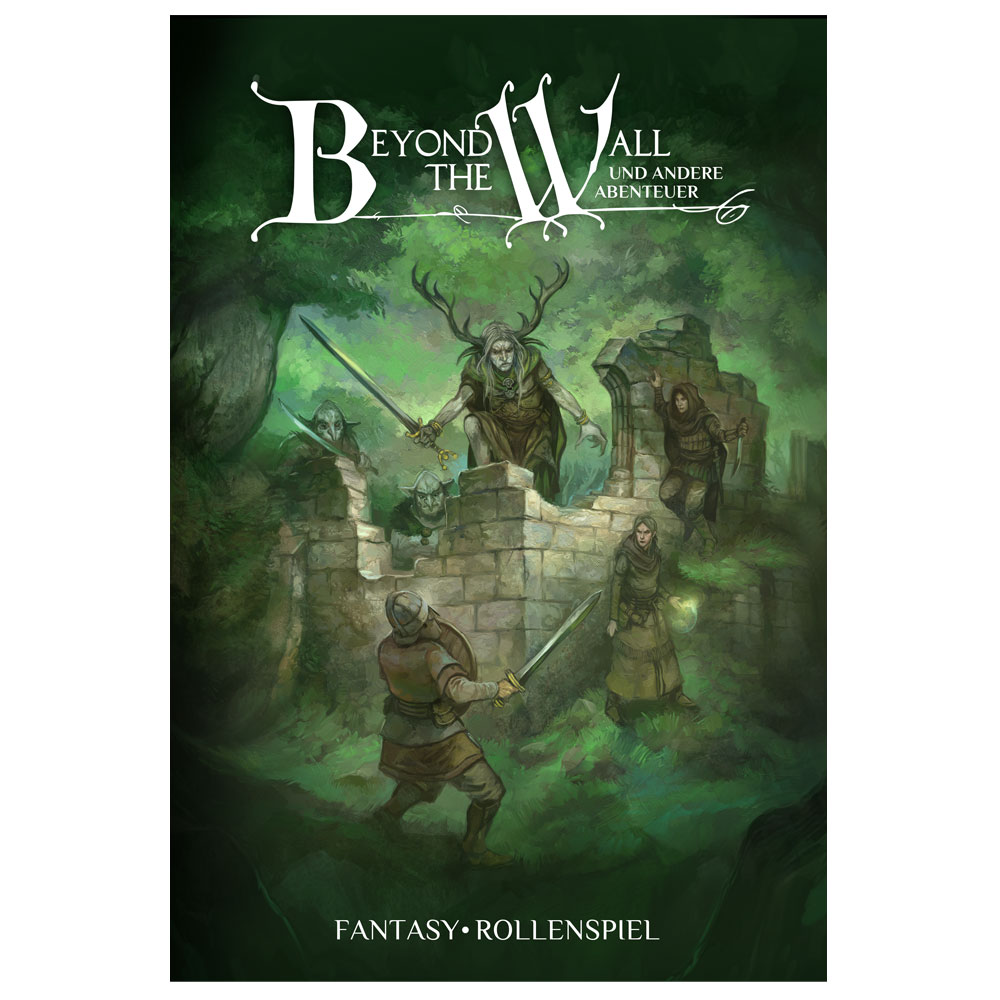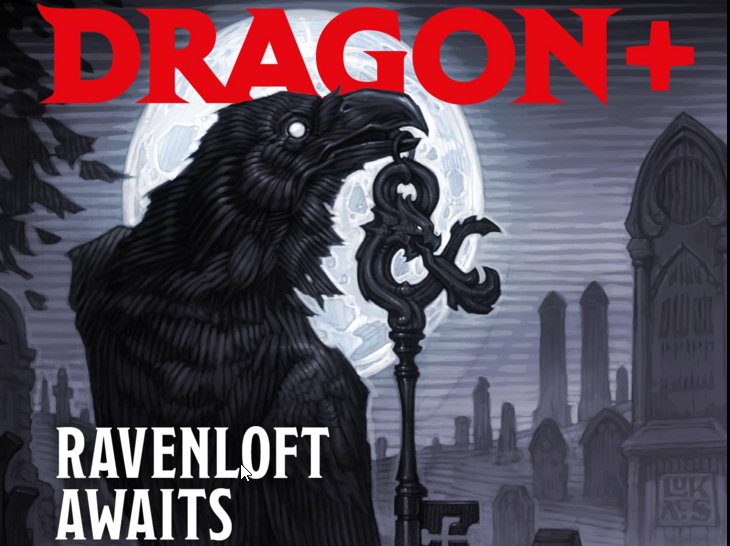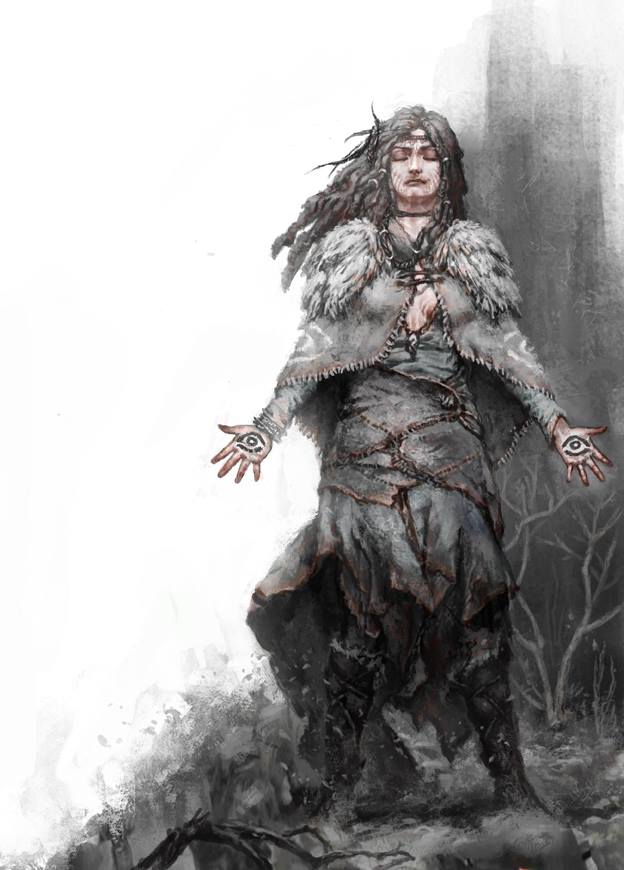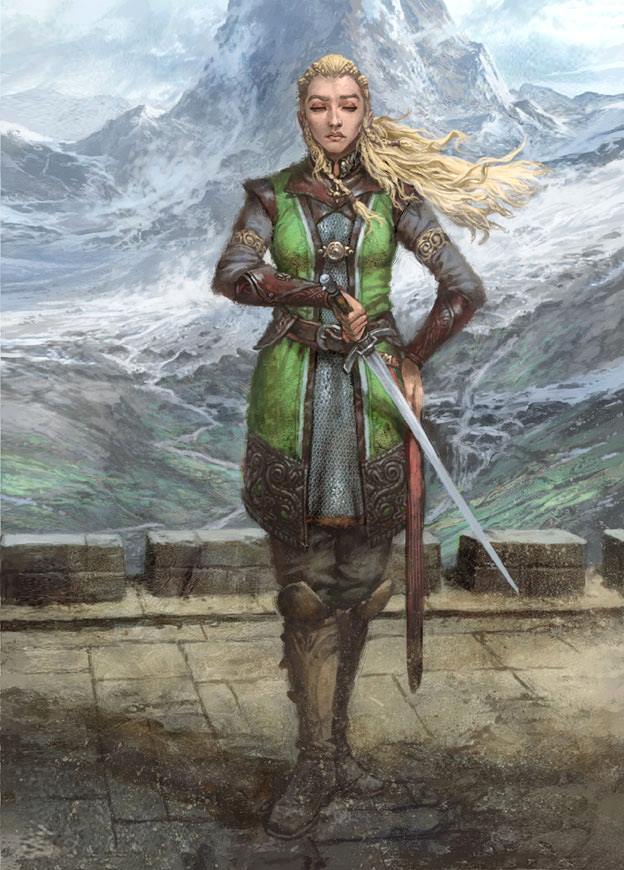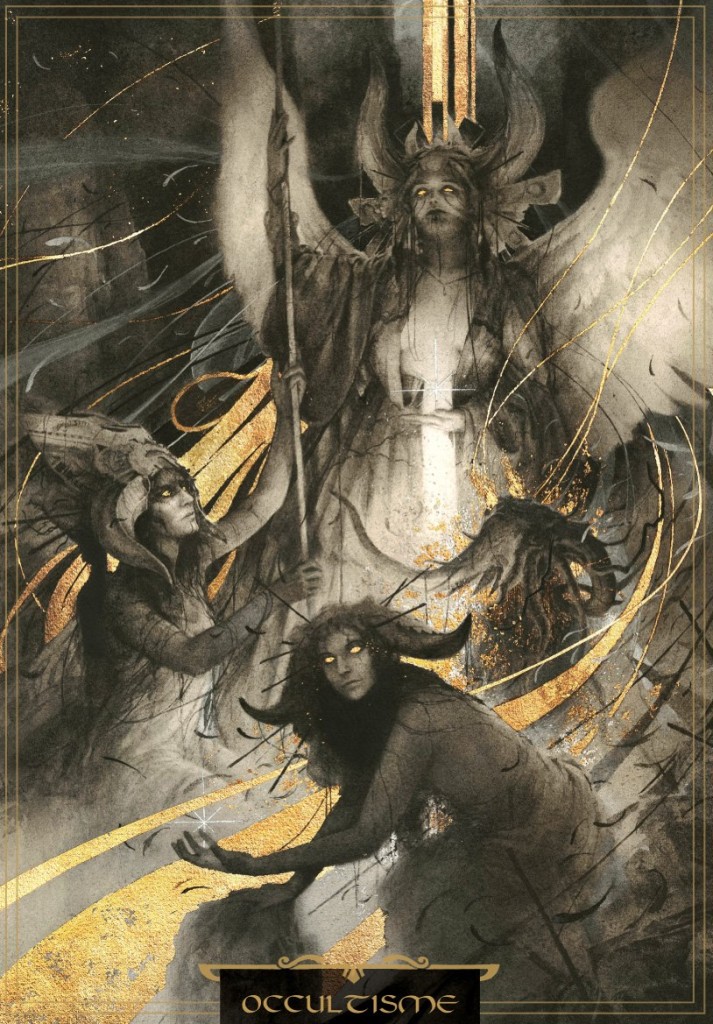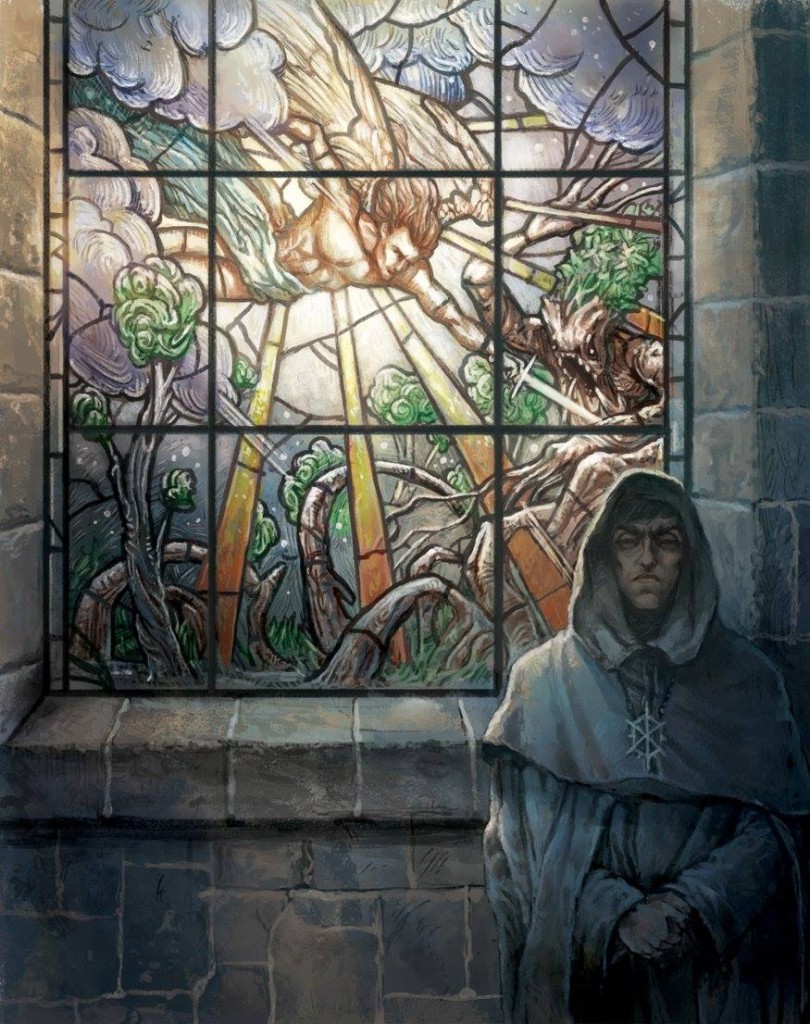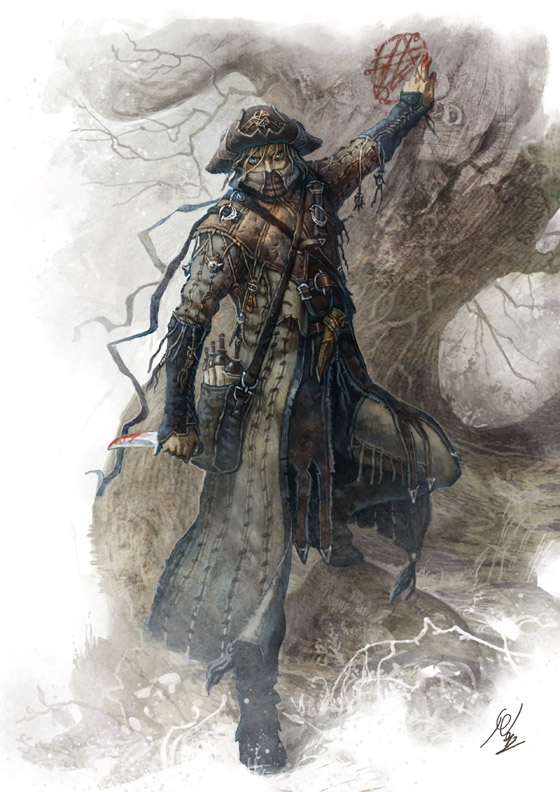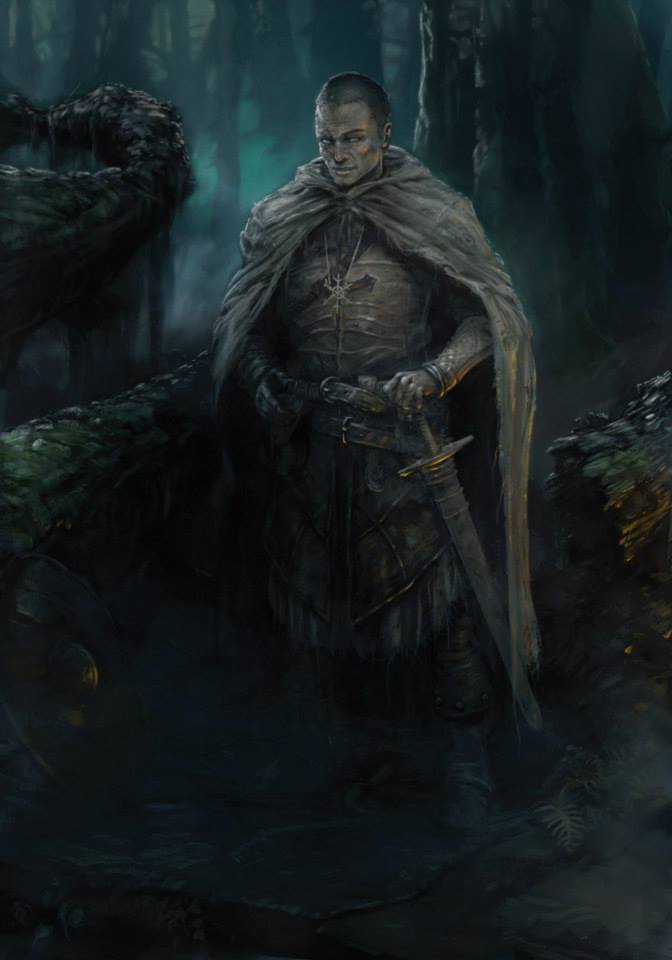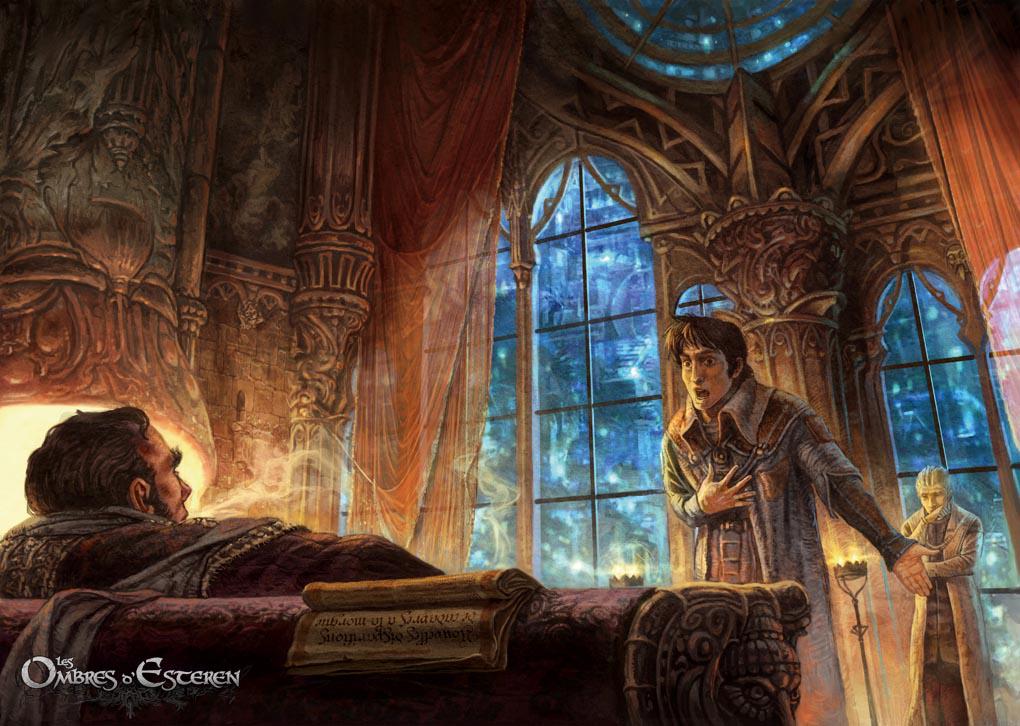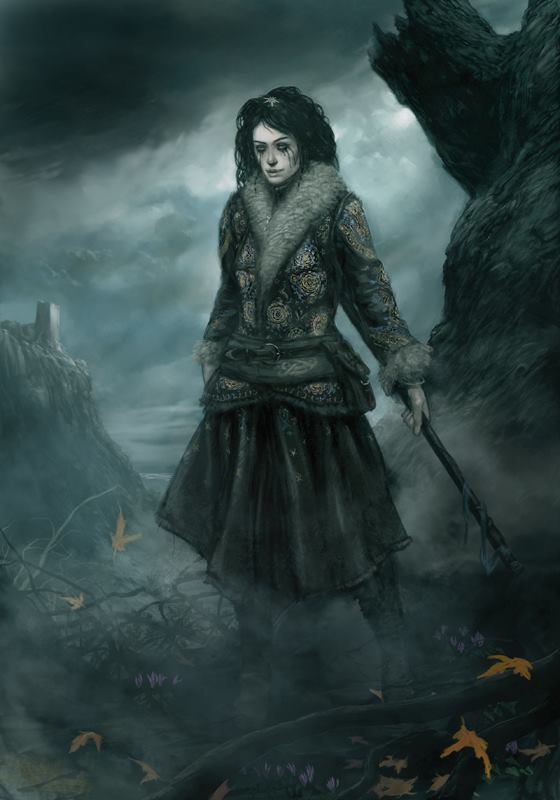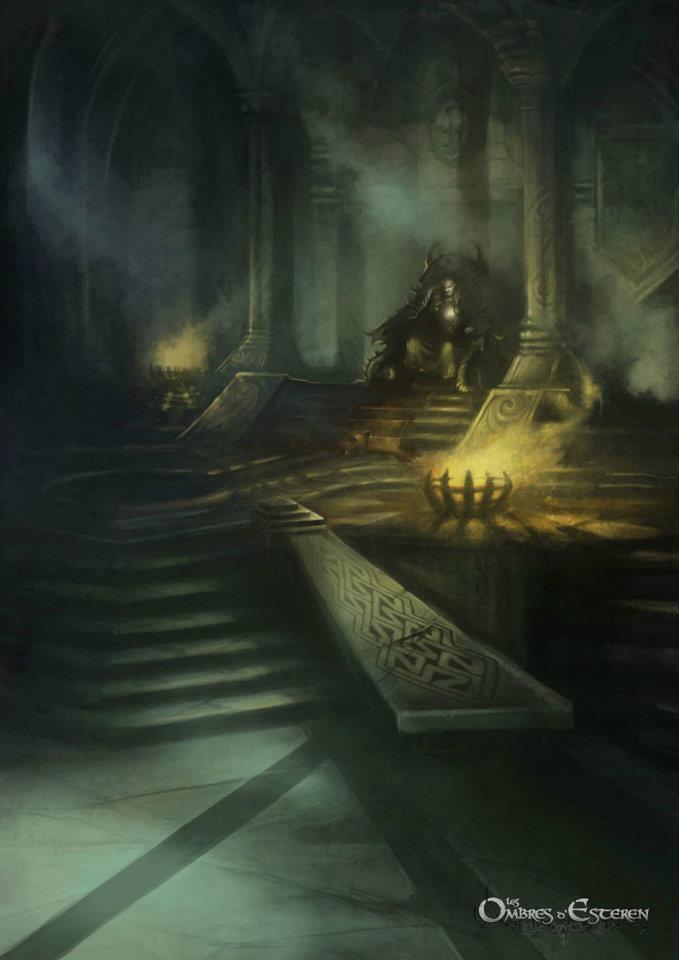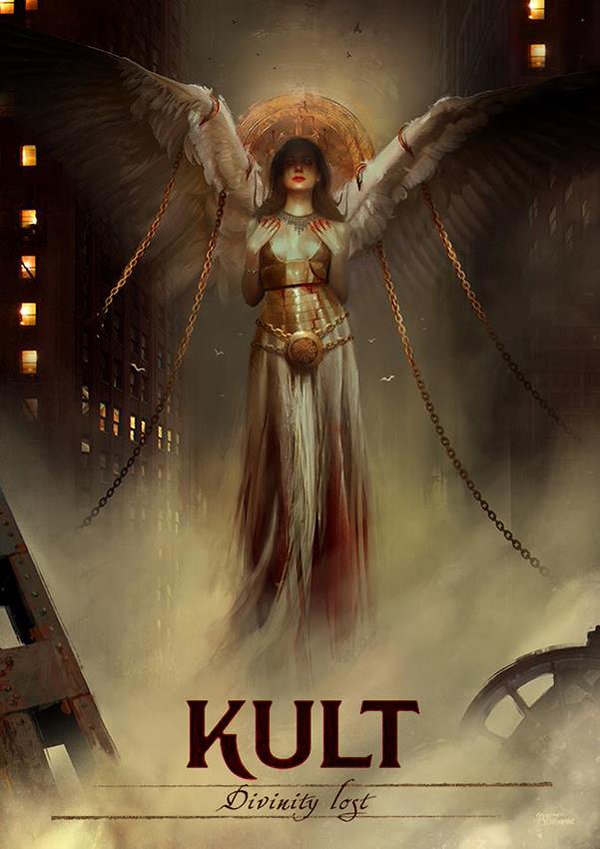
KULT: Divinity Lost (Image: Helmgast AB)
Helmgast AB. Death is only the beginning… The infamous contemporary horror roleplaying game KULT is back, 25 years after its inception! The KULT: Divinity Lost Kickstarter has been launched very successfully. Over 1100 Kultists pledged more than 120.000 US$ so far. I’m one of them.
Back in the days of the early 90s, I worked at Welt der Spiele. Mario Truant, the publisher of the German edition of the original KULT, was a colleague. He also did In Nomine Satanis / Magna Veritas. We talked alot about these groundbreaking horror roleplaying games at the office before they came out. The concept of KULT that the entire world we perceive, is an illusion held together by monotheistic belief which hides a much darker truth and the overwhelming „city of cities“ Metropolis was and is something unique. Especially KULT’s philosophical and religious depth combined with a magic system that shares similarities with real-world occult belief systems and modern magick societies are thought-provoking – beyond the gaming context.
Let’s break down the illusion.
The KULT: Divinity Lost team were kind enough to answer some questions and share their insights about their project.

KULT: Divinity Lost – Dark City (Image: Helmgast AB)
How would you briefly describe KULT: Divinity Lost and what is your personal relationship to the original KULT roleplaying game?
Marco Behrmann: KULT: Divinity Lost is a reboot of the highly acclaimed and infamous contemporary horror role-playing game Kult, originally released a quarter of a century ago, in 1991. This anniversary version of the game features a completely new rule-set, and the setting is updated to present day. Escape your nightmares, strike bargains with demons, and try to stay alive in a world full of pain, torture, and death.
In KULT: Divinity Lost, the world around us is a lie. Mankind is trapped in an Illusion. We do not see the great citadels of Metropolis towering over our highest skyscrapers. We do not hear the screams from the cellar where hidden stairs take us to Inferno. We do not smell the blood and burnt flesh from those sacrificed to long forgotten Gods. But some of us see glimpses from beyond the veil. We have this strange feeling that something is not right—the ramblings of a madman in the subway seems to carry a hidden message, and our reclusive neighbor doesn’t appear to be completely human. By slowly discovering the truth about our prison, our captors and our hidden pasts, we can finally awaken from our induced sleep and take control of our destiny.
I picked up the original KULT on the day of release. Went home and read all the materials in one long sitting. I was blown away, the game felt awesome, it was mature, it was profound, it went were no other games ever ventured before, it had blood, perversions, sex, gore, and horrible violence. This was a true horror game! We played it a lot during the following years, with several fond but gruesome memories.
Robin Liljenberg: KULT: Divinity Lost is Kult for 2016. The rules are integrated with the way you tell stories and will work to help the narrator instead of getting in the way. I got into the first edition of KULT in the late 90’s and have played some campaigns every years since then. Over the years my biggest concern with the original game was the contrast between the system and the concept of personal horror. I have tried playing KULT with a lot of different systems over the years, but it often felt as if the rules were getting in the way of the story rather than enhancing it.
When I found Apocalypse World I had a feeling that the way the mechanics for storytelling intertwined with the mechanics for character action would work really well in Kult too. So I started to hack Apocalypse World and adapt it to KULT.
KULT: Divinity Lost is a lot different from Apocalypse World but I think it have kept the best parts of the Apocalypse World Engine.
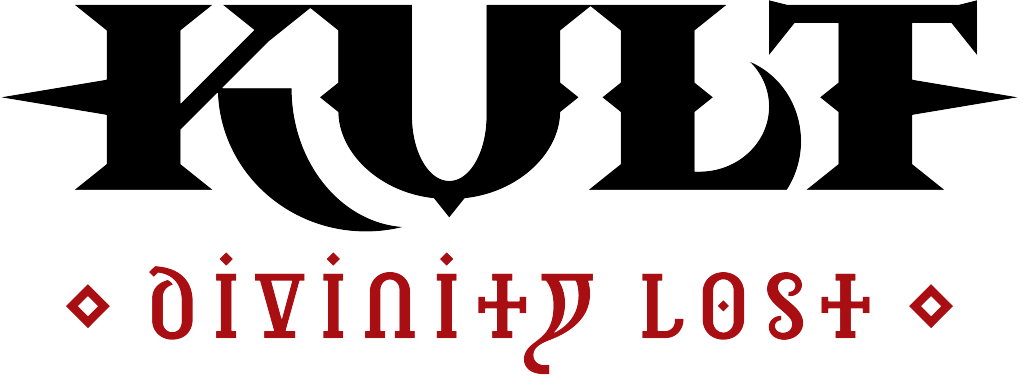
KULT: Divinity Lost – Logo (Image: Helmgast AB)
Please introduce the KULT team and Helmgast AB.
The KULT: Divinity Lost Design Team consists of three core people.
Robin Liljenberg, Head Writer and Designer, started working on the origins of KULT: Divinity Lost back in 2010, as a small, Swedish, downloadable fan-hack to the RPG Apocalypse World. He came in contact with Marco and Petter, who saw the potential and together developed the game slowly into a fully fledged RPG, fit for 2016.
Petter Nallo, Creative Director, has been involved professionally with RPG development and writing since the turn of the millennium. Headed the development of one of Sweden’s biggest fantasy RPG’s Eon, then co-writing the critically acclaimed and Game-of-the-Year-awarded Noir – a dystopic horror RPG, set in a dreamy fictional film-noir world, together with Marco.
Marco Behrmann, Project Lead, is an RPG industry veteran, and was co-founder of Sweden’s largest RPG Publisher during the 1990-ties. Besides Eon and Noir, he has been involved with classical Swedish RPG’s such as Neotech and Viking.
Marco and Petter, together with other partners, run one of Sweden’s biggest RPG Publishing house, Helmgast AB.

KULT: Divinity Lost – Angel (Image: Helmgast AB)
What are the most important features of the updated KULT setting?
Robin Liljenberg: Even in the early stages of KULT: Divinity Lost, I had a vision of a game where the characters got trapped between the normal society and this other twisted reality where horrible things were lurking. It’s a game that confronts our view of ourself as humans and the society that we have created. As the characters progress and get insight of the reality, they also get more and more estranged of their former lives. This is a great building block for drama, and by integrating relations to people in the mechanics, we force the characters to be confronted by their families and friends as they behave more and more insane.
The other big vision of the KULT setting is Humanity’s role in the universe before the imprisonment. KULT: Divinity Lost give the narrators a greater understanding of the KULT universe and the creatures that it inhabits. Many creatures are afraid of, and angry at the humans. We explain why.
How does your new system support these features? There are some rumors that KULT: Divinity Lost took some inspiration from Apocalypse World and other Powered by the Apocalypse games (e. g. playbooks).
Marco Behrmann: I’d say that the rules of KULT: Divinity Lost is like the bastard third cousin of AW – still the same PbtA family, but quite different.
Robin Liljenberg: KULT: Divinity Lost’s system gives the narrator great support for telling stories, setting scenes, and creating action and drama. The narrator never rolls and doesn’t have to memorize complex rules. Instead she has moves that inspires her to make actions that the characters can respond to and describe consequences of the actions that the characters do. Many games focus a lot on how the characters act but forget to think about good tools for the narrator. In KULT: Divinity Lost, we want to give the narrator all the help she needs to create cool and scary horror stories.
The characters’ progression to insight is reflected by the different archetypes that we have created for the game. The Sleeper archetype creates characters with no insight of the truth. The Aware archetypes create characters that have stumbled upon the truth and have just started to fall down the rabbit hole. The Enlightened archetypes create characters that are starting to reclaim their divinity. When the characters progress between archetypes, their insight into reality and alienation from society escalates. The story also changes naturally because of the mechanics integrated in each type of archetype.
Disadvantages work as a system of moves that the narrator activates in the story. If a player’s roll activates her character’s disadvantage, the narrator can have the disadvantage influence the course of the story. A haunted character could perhaps meet the horror of her past. A schizophrenic character get caught in her own reality. It’s a great tool for the narrator to create drama and horror in the story and was really appreciated by the playtesters.
The players in KULT: Divinity Lost have their own moves that gives the characters big rewards but comes at a risk. The goal is to create situations where the players have to make hard choices for their characters. Combat is incredible fast, but also really flexible and dramatic. The design goal for the rules for attacking and taking damage is that the rules should be easy to manage for the narrator but also fun and exciting for the players.
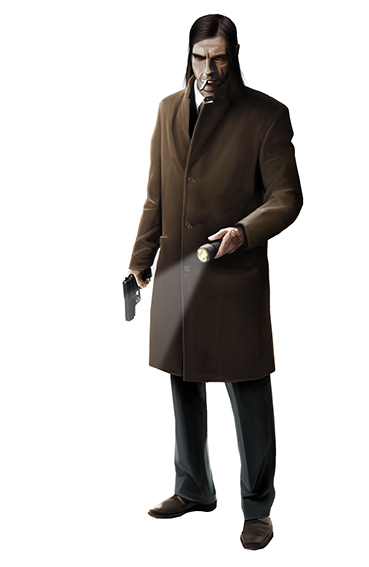
KULT: Divinity Lost – The Detective (Image: Helmgast AB)
What can players expect as far as archetypes (classes), special powers and typical threats?
In the core book, we have included the Sleeper archetype and ten Aware archetypes. With these you can create characters that are good for personal horror stories. They will explore the reality at a slow pace and get more hardened as their insight advance. The ten aware archetypes are the artist, the criminal, the fixer, the detective, the prophet, the avenger, the careerist, the seeker, the scientist and the veteran. More archetypes will be unlocked during the Kickstarter campaign or be released in scenarios in the future.
We also have included one enlightened archetype, The Death Magician, to show you how the enlightened archetypes look and present some of the magic system in KULT: Divinity Lost. As the enlightened archetypes creates a different type of play with more powerful and supernaturally experienced characters we want to expand this concept in a later expansion.
The Sleepers are like common people and usually don’t start with any special abilities at all.
The Aware and enlightened have different advantages which give them special abilities, for instance the prophet’s ability to communicate with her “God”, or the detective’s ability to shadow someone. Advantages are better than basic player moves, and often gives greater rewards at lesser risks.
Threats in KULT: Divinity Lost can be anything that conflicts with the interests of the character. The narrator usually connects established threats – higher powers in the KULT universe, for instance archons, death angels or old gods. It’s really easy for the narrator to create moves for threats at the spot, but we also have a tool for the narrator to create more complex and unique adversaries. In the setting chapters, we also include a lot of examples of supernatural adversaries in the universe.
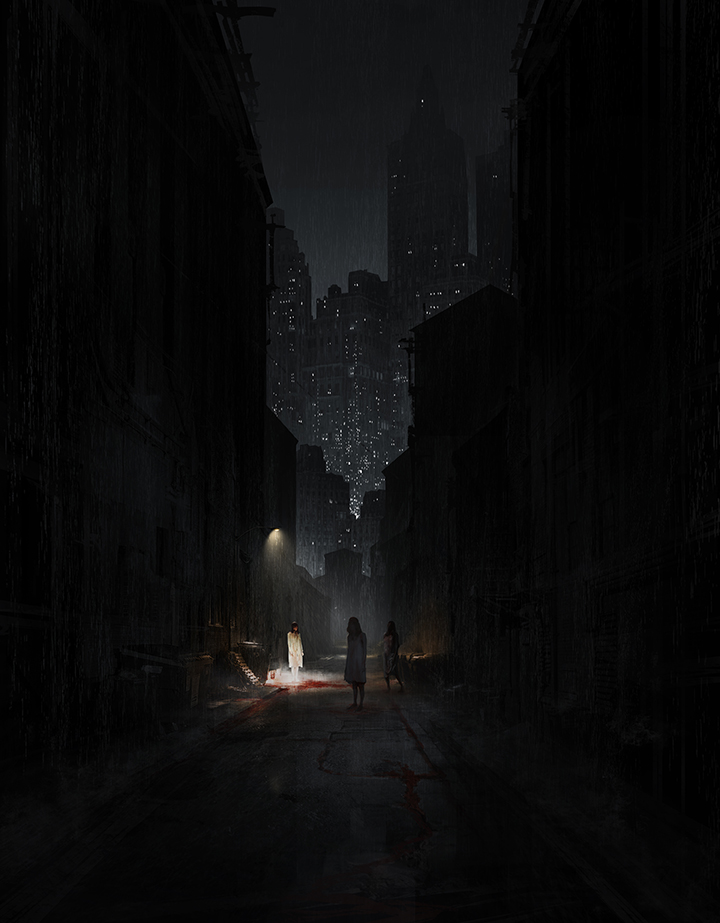
KULT: Divinity Lost – Dark Alley (Image: Helmgast AB)
What are typical stories that the players will tell with KULT: Divinity Lost? How do they differ from previous editions?
Marco Behrmann: The biggest difference is that stories in KULT: Divinity Lost will often be much more personal. You will come to realize more often than not that the reason for bad things happening and the world coming crashing down is because something you have done in the past, or failed to do in the past.
This is integrated into the model and tools the game has for the GM designing stories. Sometimes it will be more obvious, sometimes more obscure. The level of terror is often higher when the players see and understand they are the fault themselves, and often trying to run away, avoid, or confront the threats. Or maybe strike a bargain with a monster for protection against another monster.
Previous versions of KULT often had adventures where the characters were outsiders, just stumbling into a situation (the old “mysterious stranger at the inn, offering to sell you a map to a hidden treasure in a dungeon” plot device). That can of course still happen, but to a lesser degree, I reckon.
Robin Liljenberg: The stories in KULT: Divinity Lost can differ a lot depending on the players, but all include horror and darkness. We have played a ton of different stories over the years. Most of them takes place in present time, but some have been set in earlier times, just to try the rules out.
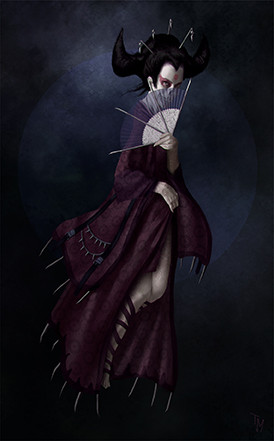
KULT: Divinity Lost – Dream Prince (Image: Helmgast AB)
Here are some examples:
– Street children in Rio de Janeiro, fighting the cultists of descendants of The Conquistadors.
– Scientists at an isolated international science station, drilling and exploring the depths under the arctic glacier 1981, when supplies run out.
– Ordinary (?) families camping in a haunted Swedish caravan site in summer of 1976.
– Crooks and occultists seeking (and stealing) eternal life from someone they should never have disturbed, in Victorian London in 1895.
– Police detectives and a criminal psychologist in search for lost children in a decaying Detroit in present day.
– A group of heavily armed elite mercenaries, venturing down through Metropolis, and getting stuck in a Citadel in Inferno – with no ammo, and no way out.
– Japanese schoolgirls in a town near the devastated lands (and a trembling Illusion) of the Fukushima accident.
– A priest, gangster and PR man in New York that are reunited after 25 years by a horrible crime they participated together in during their childhood.
The ingredients that combines all the stories are complex characters with dark pasts who see reality as a consequence of the actions of higher powers. It creates an interesting meeting between the mundane and the fantastic – inside or outside of the Illusion. A story in KULT: Divinity Lost should connect to the character backgrounds. It make the stories important and personal for the players. Seldom events or stories are random – they tie into the mechanics when the characters are created.
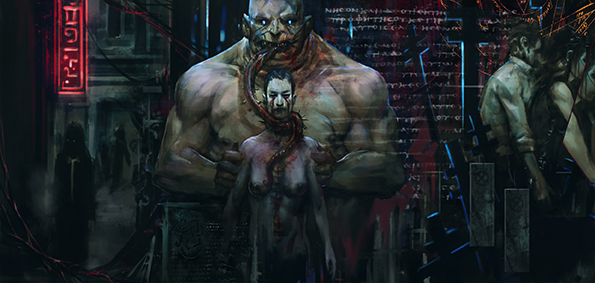
KULT: Divinity Lost – Short Stories (Image: Helmgast AB)
What kind of further development can we expect for KULT: Divinity Lost after the Kickstarter?
Robin Liljenberg: I would like to give the narrator an expansion with more detailed information about magic. We have rules for death magic in the core book but I would like to give the players the opportunity to learn magic from the other magic disciplines (passion, madness, dream, and time and space).
The gameplay for enlightened archetypes need a separate expansion to give the narrator tools campaigns that lets the character transcend towards awakening and explains the power struggles between enlightened humans and higher powers in Elysium.
It would also be great to create expansions that explore every dimension deeper and creates new archetypes connected to them. The core book have a lot of useful information that explains and give an overview of Elysium (“our” world), Inferno (the death world), Limbo (the dream world), Metropolis (the first city) and the Underworld. But I would like to give more details and tools for campaigns that explore the other dimensions.
Marco Behrmann: Right now, we have like a dozen seeds for expansions. Robin mentions some above. I’d really would like to explore KULT’s mythos in other times – seeing a proper setting in the Victorian era would be supercool – very “Penny Dreadful”-esque.
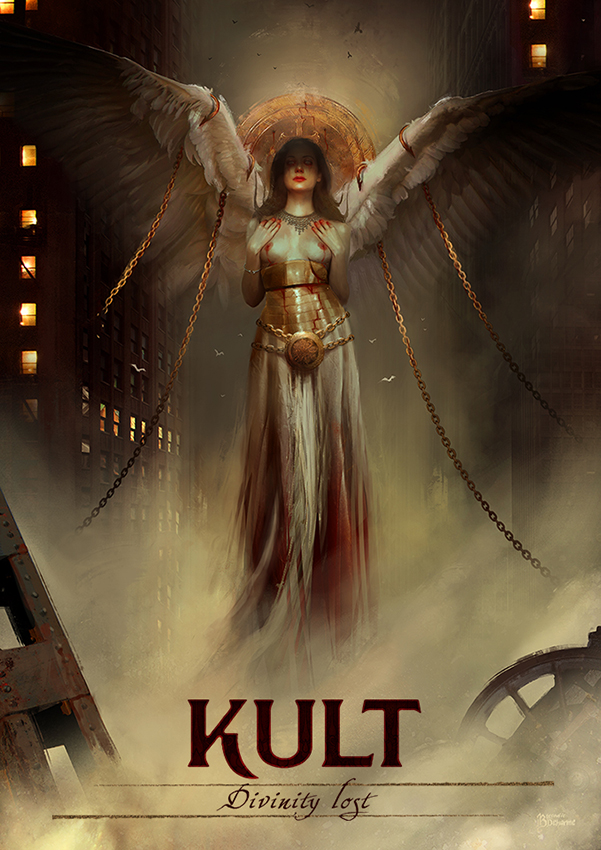
KULT: Divinity Lost (Image: Helmgast AB)
In my opinion, KULT was always a unique, very mature and provoking occult Horror roleplaying game – often on the edge to censorship. You already previewed two cover options for KULT: Divinity Lost. On your homepage there is an angel with bleeding female breasts; on Facebook you use the same angel with covered breasts. What is the idea behind or what is the gist of these provocations?
Petter Nallo: The cover is created by the eminent artist Bastien Lecouffe-Deharme. It is a tribute to the original cover (1st English edition of Kult) with a bound male angel. We consider the version with the female angel with bare chest as the original, but since this version would be against some retailers’ rules and Facebook’s, we asked Bastien to make a version with covered chest. KULT: Divinity Lost is, as you say, a mature, occult Horror RPG, filled with darkness, beauty, sex, and death.
Why do you think fans should jump aboard and support the KULT: Divinity Lost Kickstarter right now?
Robin Liljenberg: The reasons for supporting our kickstarter is that KULT: Divinity Lost will deliver a really cool horror game with a unique and deeply complex universe and a system with well thought-out narrator tools for creating drama, action and horror. KULT are famed for it’s ability to scare, and disgust, for a reason.
Marco Behrmann: During the Kickstarter campaign, we will have exclusive Collector’s editions of the core rule book, that won’t be available after the campaign is finished. Also, several cool additions will be available, through the Stretch Goals, which also will be hard to get hold off once the campaign is over.
Robin Liljenberg: The game also make it possible to play almost directly without any prepared adventures which are a great plus for people with little time on their hands. I am sure that the game will give a lot to both the seasoned horror players and the newcomers to the scene.
By backing our Kickstarter you also give us the possibility to create future expansions for KULT: Divinity Lost which gives the games life for the years to come.
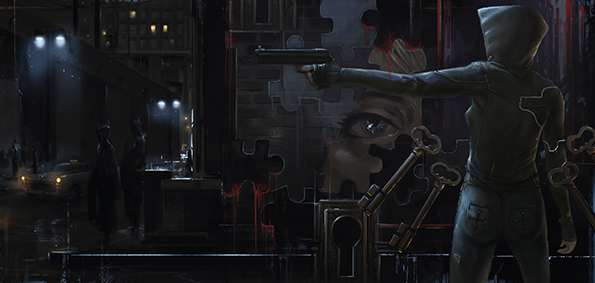
KULT: Divinity Lost – The Archtypes (Image: Helmgast AB)
Finally, what is your explanation for the recent wave of Swedish high quality roleplaying games like Symbaroum, Mutant: Year Zero / Genlab Alpha and KULT: Divinity Lost?
Marco Behrmann: Tabletop RPG’s has always been big in Sweden, starting with the publisher Äventyrsspel starting in 1982. Their classic games are still talked about, and the successful publishers of today’s Swedish RPGs are all part of that legacy. The Internet and crowdfunding has made it easier to reach an international audience.
And also, one of the key factors, I believe, is that there is a fundamental respect between the frontline entrepreneurs, willing to go big abroad, and we try to help one another, give suggestions, and try to push one another to greatness. The competition is quite friendly – we even go out and drink beers together. :-)
Thank you and all the best for your project. Anything else you’d like to add.
We thank you for this opportunity to talk about a project we really love, and has been with us for over six years now. We truly believe this version of KULT will be the ultimate one, with rules and world working together for an epic and terrifying experience.
-Robin, Petter, and Marco
You may join the KULT until 31. March 2016! See you in Metropolis …
Disclaimer: I’ve neither a personal relationship to Helmgast AB nor to the KULT: Divinity Lost team. Mario Truant, the publisher of the original German edition of KULT, provided the contact. Thank you. I’m a backer of the project.
